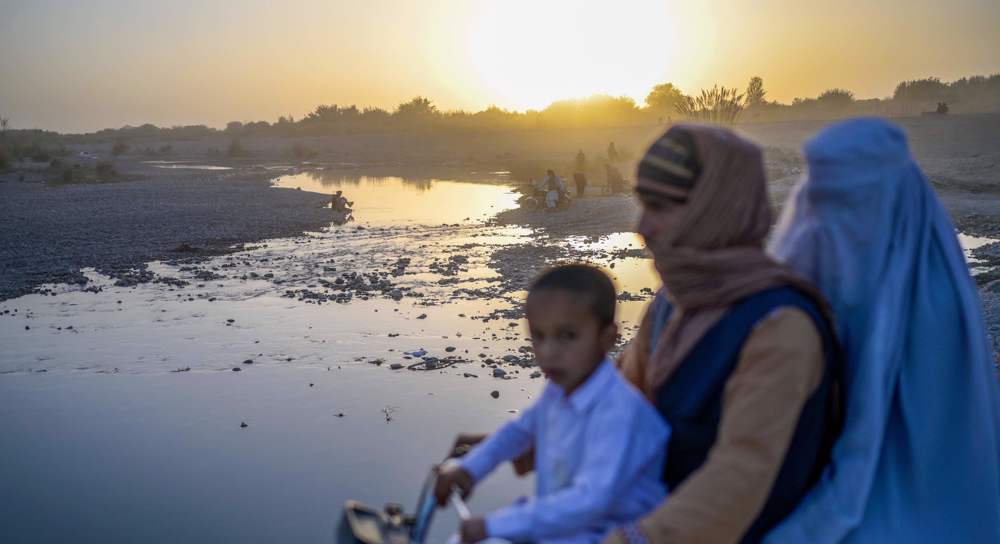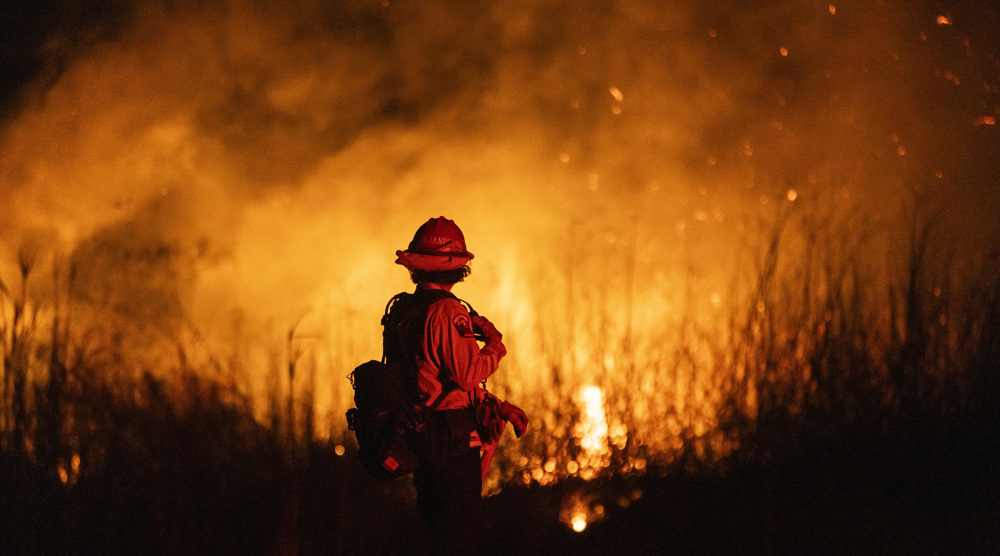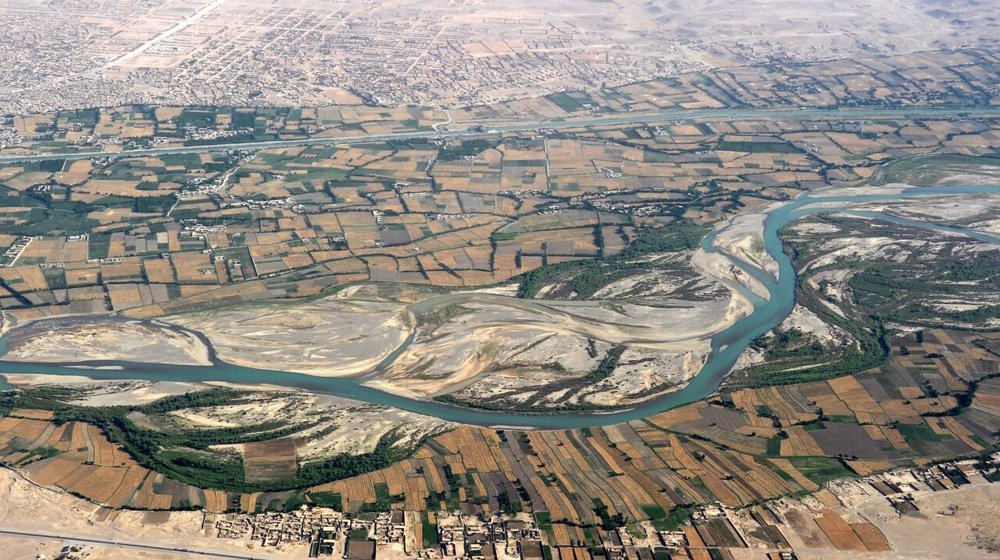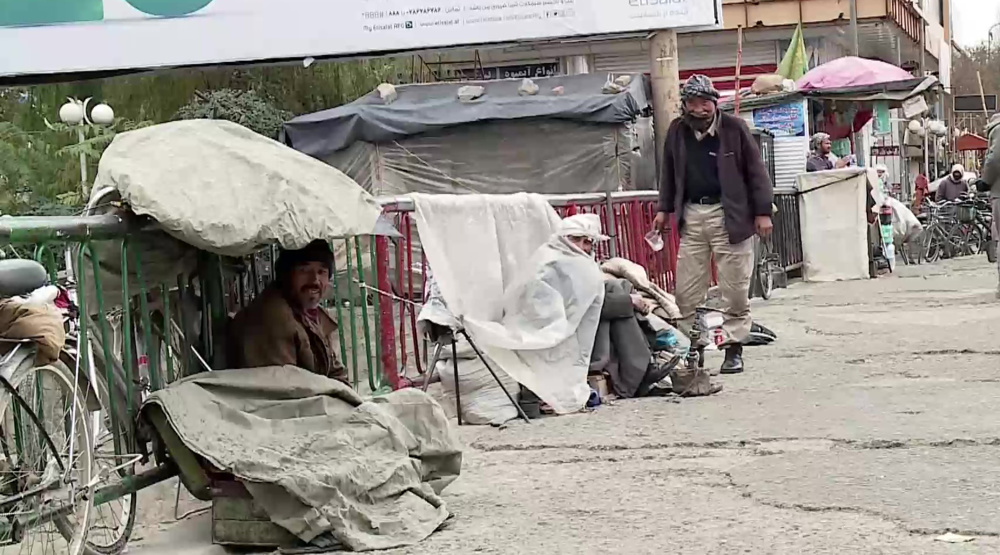Amir-Abdollahian visits Sistan and Baluchistan province to discuss Iran-Afghanistan water dispute
The Iranian foreign minister is in Sistan and Baluchistan province in the southeast of the country to follow up on Iran’s water rights from the Hirmand River, which has been a source of tension with neighboring Afghanistan.
Iranian Foreign Ministry spokesman Nasser Kan'ani said on Wednesday that the minister will have a meeting with provincial officials in the province to discuss the issue.
The spokesman said Hassan Kazemi Qomi, the Iranian president’s special envoy on Afghanistan, and Rasoul Mousavi, an assistant to the minister, accompany Amir-Abdollahian during the visit.
The Hirmand River, also known as Helmand in Afghanistan, has been at the heart of a long-running water dispute between Tehran and Kabul.
Iran and Afghanistan signed a treaty in 1973, under which Iran is entitled to receive 820 million cubic meters of water from the river per annum.
But the treaty was never implemented in full and negotiations never advanced, as Afghanistan plunged into decades of instability and various governments adopted different policies toward Iran.
The current caretaker government in Afghanistan, created by the Taliban following their takeover of the country in 2021, has announced it will remain faithful to the 1973 agreement.
But Iranian officials and lawmakers have time and again complained the country is not receiving its due share of water from the river.
On Monday, Iranian President Ebrahim Raeisi ordered the Foreign Ministry as well as the Energy Ministry to seriously pursue the dispute with Afghanistan over shared water resources.
Kazemi Qomi said on Tuesday that Iran received only four percent of its water share during the previous Iranian calendar year, which ended on March 20.
He said Afghan officials have promised to work to remove obstacles in the way of Iran receiving its share from the river, and expressed optimism the dispute will be settled in the current Iranian calendar year.
The Hirmand river begins in Hindu Kush mountains and flows over a thousand kilometers before feeding the Hamoun Lake, shared between Iran and Afghanistan.
The lake, designated a world biosphere reserve in 2016 by UNESCO, is of top importance for the environment and economy of the largely arid and poor regions of Iran’s southeast.
Dust storms from the dried Hamoun lakes have caused a serious public health crisis in Iran. The region’s economy has been gravely impacted, and thousands of villagers have moved to cities for survival.
Iran FM, Afghan acting minister discuss water share from Hirmand
A statement by the Iranian Foreign Ministry said Amir-Abdollahian on Wednesday had a phone conversation with Amir Khan Muttaqi, the acting Afghan foreign minister, during which they discussed Iran’s share from Hirmand and other issues of mutual concern.
The Iranian minister said Tehran seriously demands its share of the Hirmand River, as Afghanistan’s failure to give Iran its share has created many problems for people in Sistan and Baluchistan province.
He expressed hope Afghan officials will adopt necessary measures to settle the problem, including the creation of a joint technical committee assessing the conditions of water resources in Afghanistan.
The Afghan official, for his part, stressed that the country respects the 1973 treaty and will work to settle technical problems in this regard.
Hamas confirms handing approval of Gaza ceasefire deal to mediators
VIDEO | Iran: Show of strength
UNRWA will ‘stay, deliver’ aid to Palestinians despite Israel’s ban: Lazzarini
Explainer: What makes Iran's Rezvan and Raad loitering munitions prized assets?
VIDEO | Unseen agony: Missing loved ones of genocide in Gaza
Iran cuts gold import tariff to zero
Pezeshkian: Iran determined to develop, boost ties with neighbors
VIDEO | Israel, Hamas ceasefire agreement: Closer than ever













 This makes it easy to access the Press TV website
This makes it easy to access the Press TV website